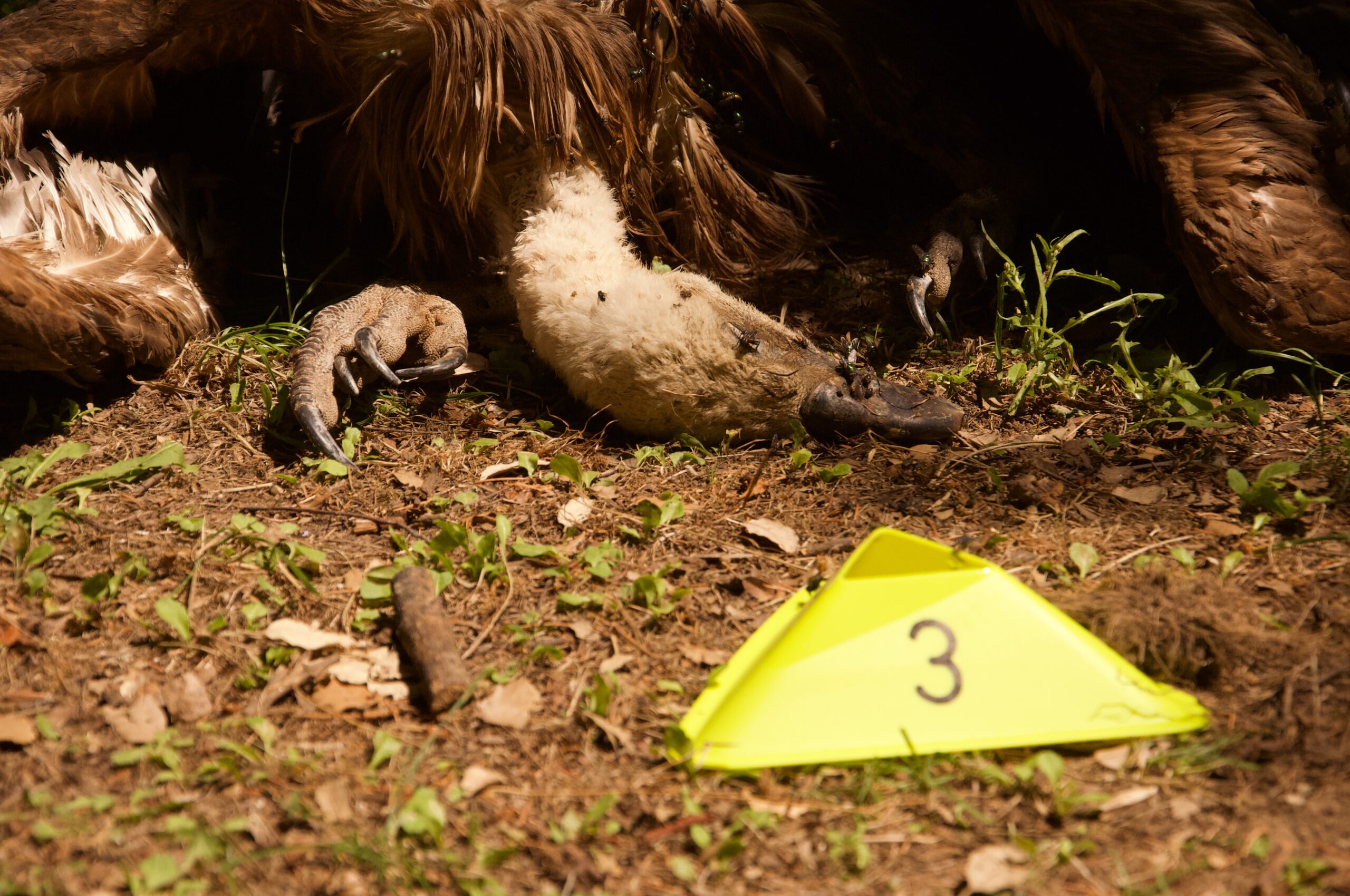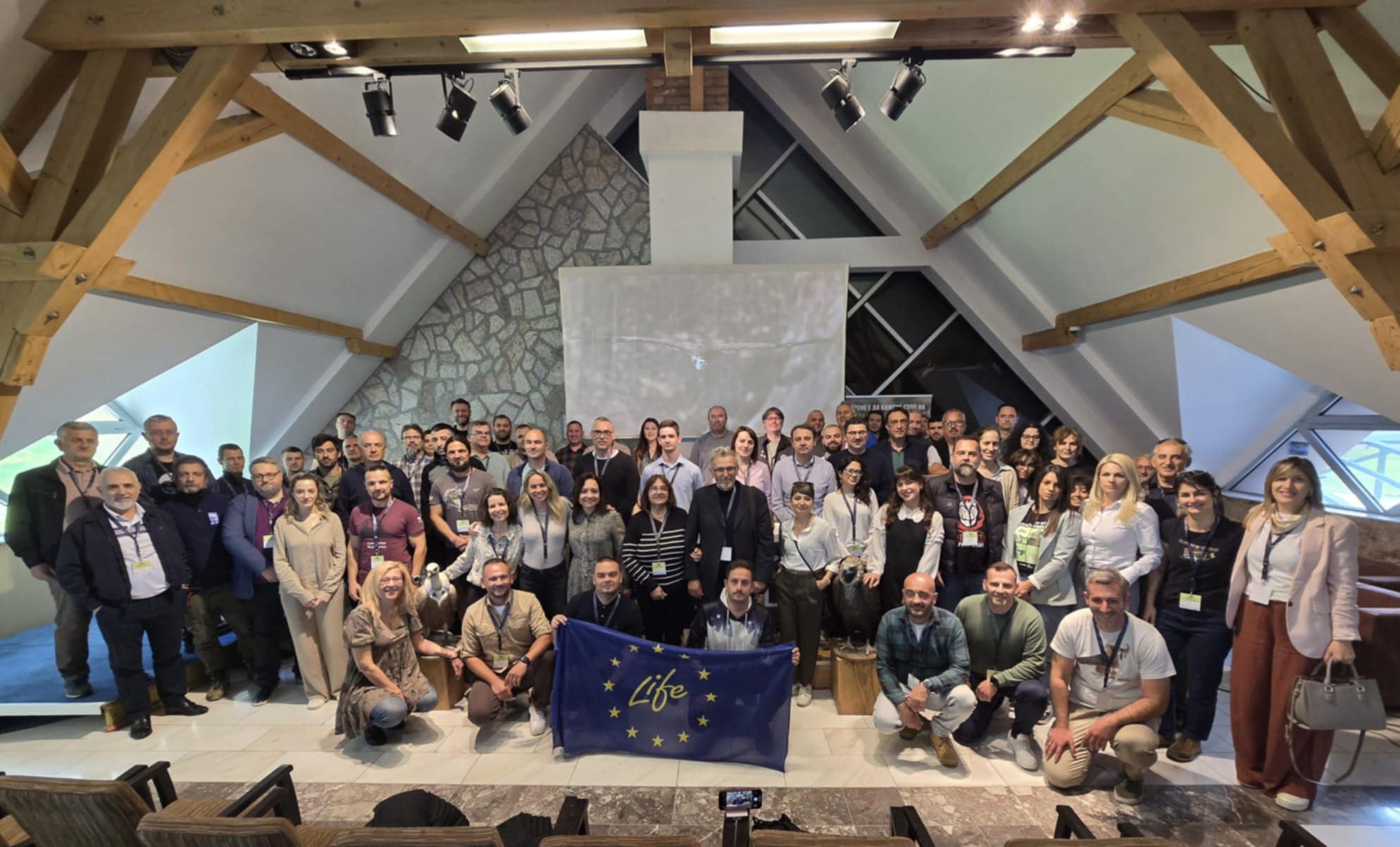
In today’s conservation work, combating wildlife crime is essential to effectively protect and preserve certain species. The sad reality is that people behind serious wildlife crimes like poisoning and poaching usually go unpunished. And impunity facilitates these illegal activities to continue, exploiting and killing wildlife in the meantime. The Wildlife Crime Academy (WCA), organised by the Vulture Conservation Foundation (VCF) and the Junta de Andalucía, aims to change that.
The Advanced Course of the Wildlife Crime Academy
After years of preparation, the first Wildlife Crime Academy course took place this summer in Spain. Ultimately, the WCA strives to provide the opportunity to as many people as possible across Europe and eventually the world to receive the training necessary to combat wildlife crime. Subsequently, participants will implement the practices learned in their respective countries to help deter people from committing these crimes so that less wildlife suffers.
A few months ago, the Basic Course hosted key stakeholders working in conservation, law enforcement and forensic science from eight countries in the Balkans and elsewhere to train them on how to detect, manage and investigate wildlife crime, and in particular poisoning incidents. The participants reunited last week for the Advanced Course, where they were able to enhance their specialisation in their corresponding areas of expertise.
Specialisation in forensic and police investigation of wildlife crime

Based on over 15 years of experience, training specialists from the Junta de Andalucía and EUROPOL devised the syllabus for the latest course. The concept is straightforward – take the necessary procedures to treat wildlife crime with the severity it deserves. So, if a GPS-tagged vulture disappears or if the carcass of a bear emerges in the middle of a forest, the key stakeholders should be able to act swiftly and take the appropriate steps to investigate these potential wildlife crimes. The Wildlife Crime Academy’s Advanced Course demonstrated how to do just that.
Participants got the chance to learn all about Crime Scene Investigation (CSI) – how to conduct systematic examinations, collect and secure evidence while using deductive and inductive reasoning to help determine the facts of the case. WCA covered various associated topics, from collecting fingerprints to utilising canine units and identifying deception through body language.
Let’s not forget forensics – a crucial part of the investigation where forensic scientists analyse evidence to develop objective findings that can reveal causes of death and even assist in the prosecution of perpetrators. The WCA delved into key areas, including forensic entomology, non-conventional sampling and interpretation of toxicology results, among others.
We can only fight wildlife crime if we work together and learn from one another. The WCA team will continue to work diligently and dedicatedly to keep growing the teams of wildlife crime experts across Europe and elsewhere, achieving convictions and justice for wildlife!
Next year, the WCA will host a second cohort of enforcement agencies, pathologists, forensic veterinarians and toxicologists, and the VCF is stringing to find the funding to continue this initiative and programme beyond as results so far have been very promising, and there is defiantly interest from many countries to join.
Special Thanks
The WCA received funding from the European Commission’s LIFE Programme (primarily BalkanDetox LIFE and LIFE with Vultures), the MAVA Foundation and Euronatur. It became a reality thanks to the support of Ministerio para la Transición Ecológica y el Reto Demográfico and the organization of the VCF and the Junta de Andalucía (Regional Government of Andalusia).
We want to thank the participants who attended the WCA to build capacities for fighting wildlife crime in their respective countries. We also want to acknowledge the traineers: Iñigo Fajardo, Irene Zorrilla, Jose Joaquin Aniceto del Castillo, Alicia Moreno Fernandez, Alfredo Lineros, Justo Martin Martin, Jose Miguel Antonaya Bellido, Salva Pacheco, Jovan Andevski, José Antonio Alfaro Moreno, Antonio Ruiz García, Francisco Velasco Jiménez and Isabel Fernández Verón.




